After all, the success or failure of the revolutionary cause in general and the cadre work in particular depends largely on the cadre team, especially the key cadres at all levels. Because they are the ones who preside over discussions, propose, and set out criteria for evaluation, selection, and planning for the construction of the cadre team... Therefore, it is necessary to clearly state who has the right to decide in the cadre work in order to have measures to control power and prevent the risk of turning positions into commodities for exchange and sale.
Who has the decision-making power in personnel work?
On March 26, 2016, speaking at the National Conference of the Party Organization and Building Sector, General Secretary Nguyen Phu Trong said: “ Every time there is a congress, every time there is preparation for a vote of confidence, there is a buzz of campaigning, inviting each other to eat and drink, giving money, giving gifts. Is there something “sneaking” into that sentiment?” From there, the General Secretary suggested that the conference frankly discuss, look straight at the truth to see if those things exist or not, to what extent, to be clear with a series of questions that have been raised: “ If there is (running), it must be corrected, lessons must be learned. If there is not, it must be answered honestly. Who is running? Who is running? What is behind it? Maybe we know but cannot say it or do not dare to say it?”.
When a position is considered a commodity, it will exist according to the law of the market, that is, if there is supply, there will be demand and vice versa. In this “supply-demand” chain, the main source of supply is the person who can “run”. From there, we can “narrow down” the answer to the question “Who is running? Who is running?” as follows: “Who is running” must be running to the person who has the power to decide in personnel work. Currently, the person who has the power to decide in personnel work of our Party and government agencies, in general, is the executive committee, but in essence, the power belongs to the standing committee. But the standing committee is not the final one, the bottom line is that we must “run” to the leader, that is, the secretary. The leader can decide up to 95%. Because the secretary is the one in charge.
The chairman means having the right to propose personnel. Second, the secretary has the right to lobby. Third, the secretary has the right to decide the timing. A standing committee of a provincial party committee, district party committee, or agency knows everyone, so the personnel the secretary proposes is "we support it". In short, whoever runs must run the person with the right to decide. Whoever runs is the one in need. Those are opportunists, and there are also people who are not opportunists at all, but they have the need, they want to contribute, there are even people who feel they have enough ability and qualifications, but now the whole village is running, and if they don't run, they won't feel secure.
For that reason, to combat “buying positions and power”, it is necessary to strictly control power in personnel work in a multi-dimensional manner. That is, control by institutions combined with control by ethics and responsibility; internal control of the organization combined with external control of the people and society; control of the superior over the inferior combined with control of the inferior over the superior; control within the Party in sync with control of each organization in the political system, in every organization of society.
In particular, it is necessary to focus on controlling the power of the Party Secretary, the Party Committee, and the Standing Committee of the Party Committee; not to let the leader become a lifebuoy, a destination for those who want to buy official positions. Another very necessary solution to control power is to reform the Party Inspection Agency and the State Inspectorate to establish a mechanism to control power in general, and in personnel work in particular. Accordingly, it is necessary to build an independent inspection and supervision mechanism and increase power. Currently, in our country, the inspection committee is elected by the Party Committee, the committee members are approved by the Party Committee, and then the inspection committee re-inspectes the Party Committee. How will the objectivity be? Research on transferring the inspection agency to be directly under the National Assembly and the People's Council to have independence and promote the role of controlling power over the head of the administrative agency.
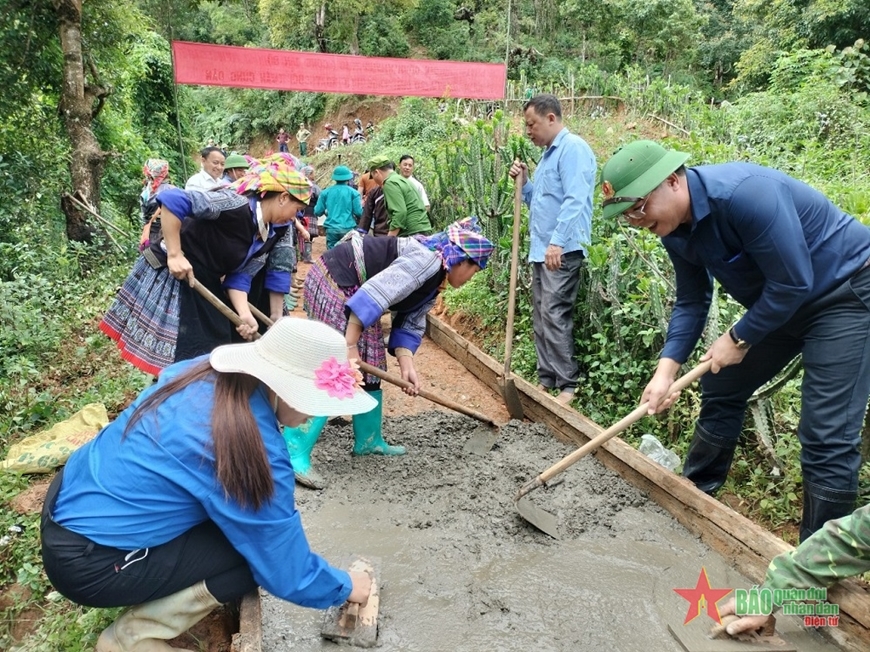 |
| Officials and party members of Mu Cang Chai district and local people pour concrete on rural roads in Dao Xa village, Lao Chai commune. Photo: qdnd.vn |
In addition, it is necessary to strictly implement Regulation No. 114-QD/TW dated July 11, 2023 "on controlling power, preventing and combating corruption and negativity in personnel work" of the 13th Politburo; Regulation No. 69-QD/TW on disciplining Party organizations and Party members who violate regulations of the 13th Politburo and many other regulations related to personnel work with the following solutions: Tighten the process and regulations on recruitment and appointment of cadres in the direction of attaching specific responsibilities to the person nominating the cadre and the head of the Party Committee proposing the appointment of the cadre. For example, if a cadre is found to have committed serious violations before being nominated and within the first 5 years from the time of appointment, the nominator and the head of the Party Committee proposing the appointment of that cadre will also be considered for disciplinary action to avoid the situation of hiding behind the collective Party Committee to "support in an unclear manner".
Immediately publicize the list of cadres from planning to promotion, appointment, evaluation, and rotation so that the masses know and supervise together. Resolutely innovate the work of evaluating cadres, party members, civil servants, and public employees according to the principle of taking qualities, qualifications, and work efficiency as the main measure; shift from qualitative to quantitative assessment by scoring each content. Research and promulgate a mechanism to vote for confidence in cadres and party members, especially leaders and managers, once a year in the Party Committee, Party organization, and collective agency and unit. Thus, if cadres and party members are not worthy, they will soon be eliminated and no one will dare to sell even if they want to "buy a position".
Since the revolutionary government, our country has held 15 elections for National Assembly deputies and dozens of elections for People's Council deputies at all levels. This is essentially the recognition of the forms of election campaigning of cadres and party members. The contact of cadres at all levels with voters before the election clearly demonstrates the campaign strategy of each specific individual; presenting and defending action programs before voters and the people.
Therefore, many opinions suggest that it is necessary to closely follow the viewpoints, policies, and principles of the Party and the State's laws to study and expand the forms of "campaigning" for certain positions and titles in the political apparatus. This work needs to be carried out carefully, with appropriate steps, while doing it, summarizing and drawing experience, avoiding the situation of "blue army, red army"; it is necessary to pilot a number of positions and titles... For example, for each position of cadres that needs to be appointed, on the basis of cadre planning, the head of the Party organization, the government or the direct superior will introduce two or more candidates to present the action program at the Party Committee conference and the conference of cadres in charge before voting for confidence and nomination to ensure fair competition and more objective evaluation. In addition, the organization of cadre recruitment exams needs to be implemented uniformly according to the roadmap at each level for positions that can be recruited through exams.
Three Chinese experiences
In China, the experience of preventing and combating “buying positions and power” lies in three key issues: perfecting the system, making accurate appointments, and resolving the degeneration of power. To make accurate appointments, one must first choose the “standard” person in power. This “standard” will be the premise and basis for limiting abuse of power. The key to selecting the right person is to grasp the correct criteria for using people. This criterion determines whether power is truly in the hands of people with both talent and virtue. To make standard and proper appointments means to follow the correct procedures and methods, strictly implement the democratic personnel recommendation system, and strictly implement the principles of open, fair, and democratic competition.
In which, democracy is the basis, the premise of selecting candidates, the key factor in selecting suitable candidates. That requires that when selecting officials, we must truly achieve the people's wishes and aspirations, so that those appointed are fully aware that their power belongs to the people, must be used for the purpose of serving the people, wholeheartedly serving the people. Along with accurate appointments, it is also necessary to perfect the system of stripping power after appointment. People always have two sides, even if the recruitment system is well-perfected, the evaluation and inspection stages are very strict, it is still difficult to avoid choosing people who are not suitable for the position, or when appointed, they meet the requirements but then become corrupt. This happens a lot in real society, requiring the establishment of a system of stripping power after appointment. Power in the hands of those who abuse power can be taken away at any time, so that power at any stage or process must be in the hands of those who are trusted by the party and the people.
Second, improve the mechanism of decentralization, strengthen power supervision, and avoid excessive concentration of power. There are two reasons for power concentration: One is the institutional reason, the other is the reason coming from the person in power himself. In terms of institutions, the boundaries of power are unclear, while exercising one's power there is a monopoly, does not want to be interfered with, only expresses one's personal views, and fully exerts personal power, which can lead to taking advantage of power for personal gain. Therefore, it is necessary to separate and adjust powers, so that the scope of power must be within a reasonable level, the boundaries of the elements constituting power must be clear, and at the same time can control, restrain and supervise each other. It is necessary to build a scientific and detailed process of power operation to narrow the gap in the process of exercising power, avoiding too large a gap leading to creating loopholes for abuse of power.
Third, in the process of exercising power, one must be open and subject to the supervision of the people. The process of exercising power is essentially the process of decision-making. The fairness, standards, and correctness of decision-making directly affect the results of the exercise of power. Only when decision-making ensures transparency can people see a "clean" policy, only then can one "call upon" the people's self-awareness in implementing the policy, ensuring good and correct implementation of the policy's goals, and avoiding opportunities for abuse of power. Only when the decision-making process is open can one ensure that power is not corrupted. When power loses the supervision of the people, it is centralization and autocracy that is far from the masses, which inevitably leads to abuse of power. This requires that anything "unsuitable for public disclosure" must be made public for the people to know. For example, transparency in selection and appointment, transparency in government work, transparency in public security, finance, inspection, and adjudication work... By increasing transparency, the process of exercising different types of power will be brought before the people and subject to public supervision, thereby allowing for proper exercise of power and thereby effectively preventing abuse of power.
Valuing and turning positions into commodities, although only a phenomenon, is discussed by public opinion, but it is very alarming and needs to be evaluated and recognized fully and seriously. It is the seed that gives rise to the evils of "buying positions and power", corruption, negativity and all kinds of bad habits; it weakens the cadre team, corrupts social morality, gradually destroys the role of the Party, and threatens the survival of the regime.
Source



![[Photo] Magical moment of double five-colored clouds on Ba Den mountain on the day of the Buddha's relic procession](https://vphoto.vietnam.vn/thumb/1200x675/vietnam/resource/IMAGE/2025/5/9/7a710556965c413397f9e38ac9708d2f)
![[Photo] Prime Minister Pham Minh Chinh chairs a special Government meeting on the arrangement of administrative units at all levels.](https://vphoto.vietnam.vn/thumb/1200x675/vietnam/resource/IMAGE/2025/5/9/6a22e6a997424870abfb39817bb9bb6c)



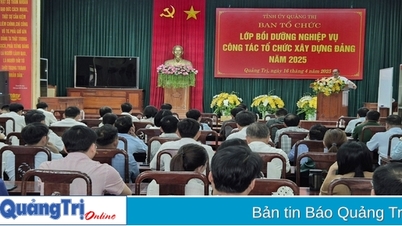

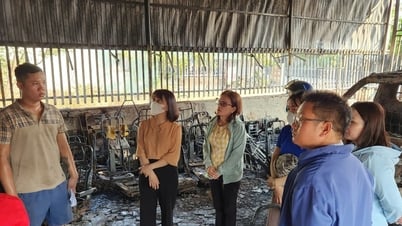
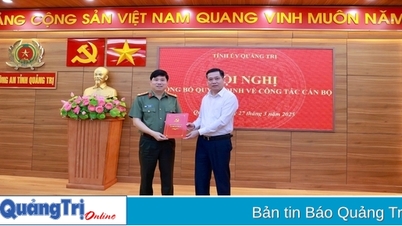



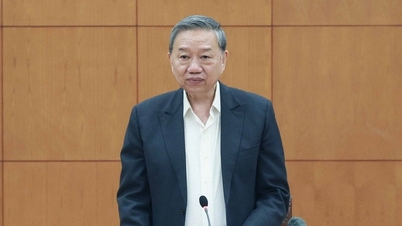

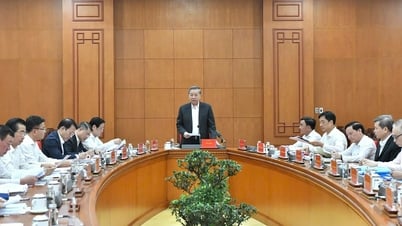
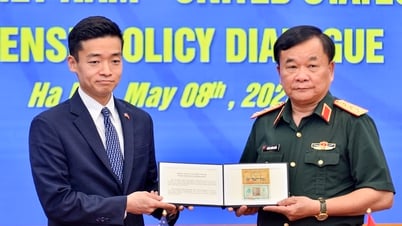
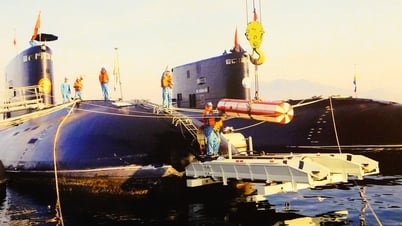
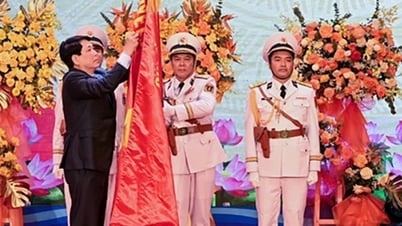

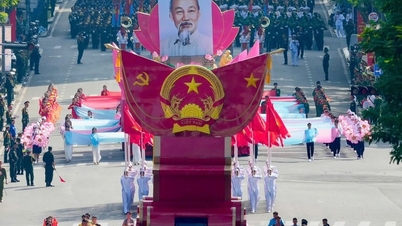
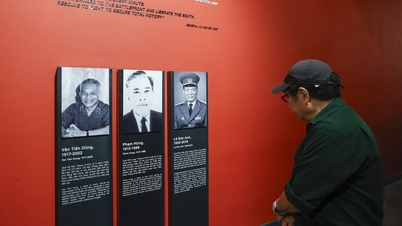




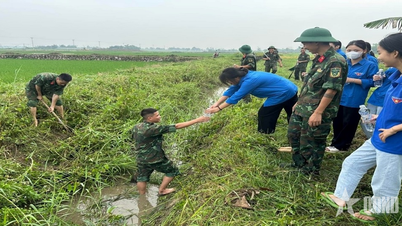
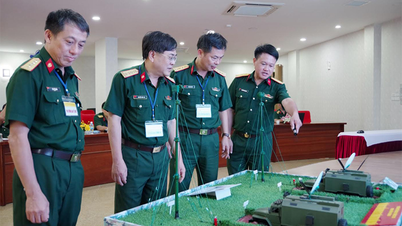
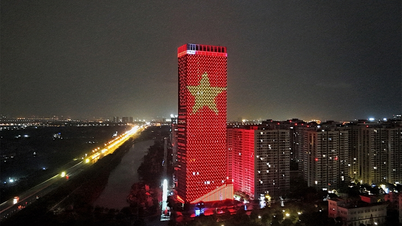
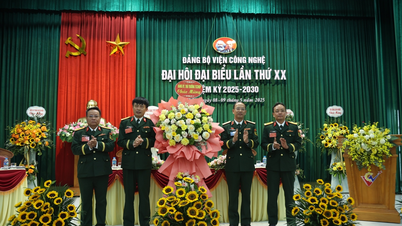
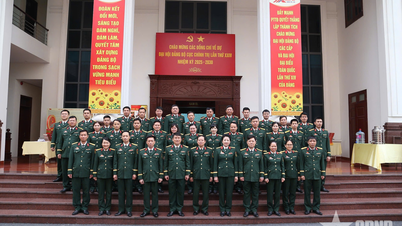
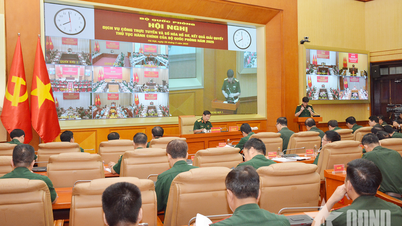
































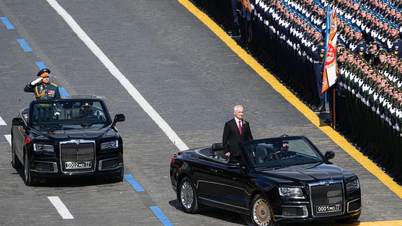

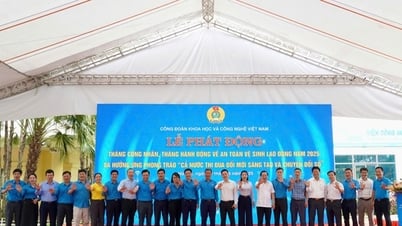

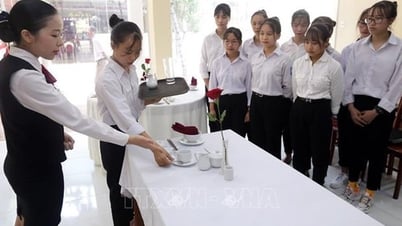

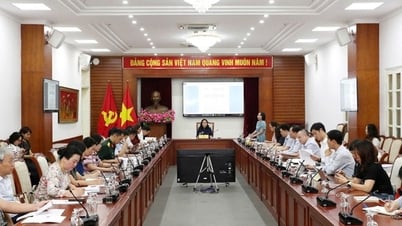

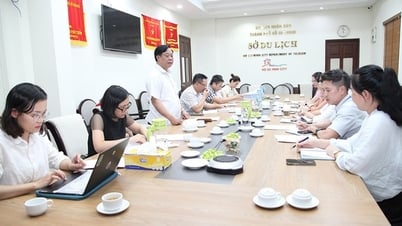
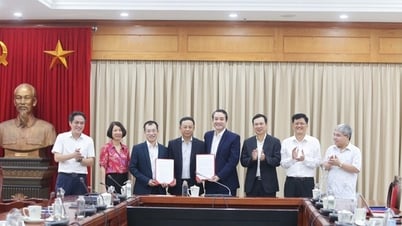
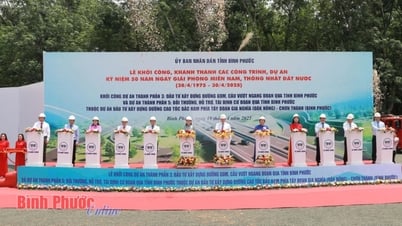

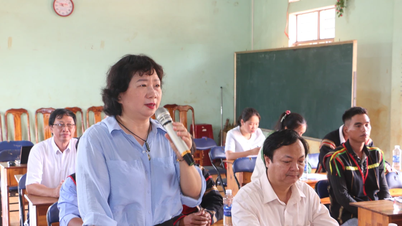



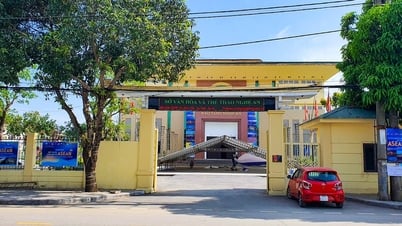

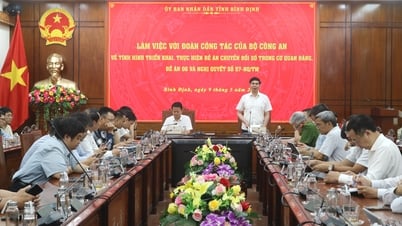

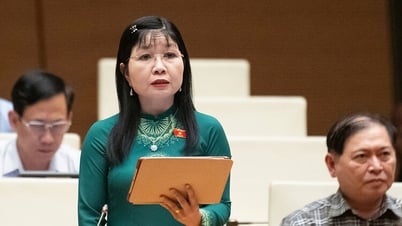











Comment (0)